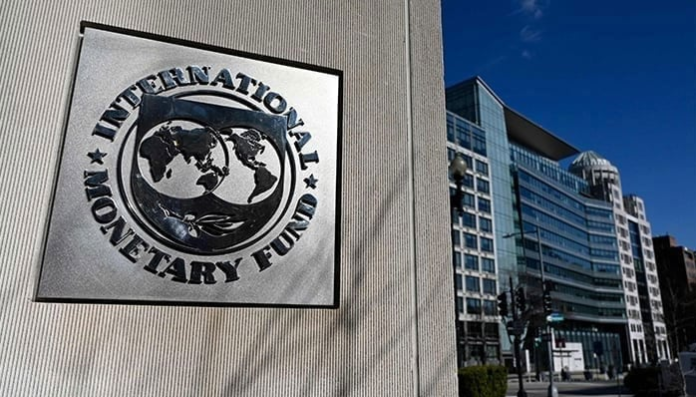ISLAMABAD, JUN 25 (DNA): The updated Finance Bill 2025–2026, which suggests lowering the thresholds to prevent “ineligible persons” from purchasing real estate and automobiles, may face serious objections from the IMF.
For the first time in the country’s history, the National Assembly’s Standing Committee on Finance has made changes to the revised Finance Bill during the parliamentary process.
Since the new Finance Bill has loosened strict provisions, the IMF may seriously dispute these modifications, particularly those pertaining to enforcement measures to raise Rs389 billion. The administration would need to provide justifications and demonstrate its commitment to raising the targeted revenues without experiencing a significant deficit in reaching the Rs14.131 trillion target.
While the budget was unveiled, the Finance Bill was 355 pages long, which has shrunk to 348 pages now and it will be presented to the National Assembly in two days.
The revised Finance Bill 2025-26 introduces a threshold of Rs7 million for vehicle purchases. If the invoice value for a locally manufactured vehicle or import value as assessed by the Customs Authority inclusive of all applicable taxes, duties, levies and charges exceeds this amount, the buyer will be declared as an “ineligible person”. These individuals will be required to show their financial standing by presenting their last filed tax returns when applying for booking, purchase, or registration of the vehicle.
Regarding an application for registering, recording or attesting transfer of any immovable property, there shall be a threshold exceeding Rs100 million as defined by fair market value.
In relation to investment in securities, debt securities, units of mutual funds or money market instruments subject to the condition that investment amounts up to Rs50 million shall be new investment in any financial year excluding reinvestment either by liquidation of similar type of securities and or reinvestment of returns earned on already held securities, threshold limit shall be exceeding Rs50 million.
Opening or maintaining of bank account, only saving account shall be dealt. On the annual cash withdrawal limit, Rs100 million in all bank accounts held by an individual will be the threshold.
Under 175AA, the revised Finance Bill explains about exchange of banking and tax information related to high-risk persons:
(1) Notwithstanding, anything contained in any law for the time being in force, including but not limited to Banking Companies Ordinance, 1962 (LVII of 1962), Section 216 of this Ordinance, and any regulations made under the State Bank of Pakistan Act, 1956 (XXXIII of 1956),
(a) the Board may share information obtained from tax declarations with scheduled banks in Pakistan in respect of persons or classes of persons, for the purpose of cross-matching with the bank data through data-based algorithms, as may be prescribed, and (b) the scheduled banks shall provide to the Board final results where banking data is at variance with algorithms provided under Clause (a) of this Sub-Section.
(2) All information received under this Section shall be used only for tax and related purposes and kept confidential.
For seizing of counterfeit goods, without prejudice to foregoing provisions of this Section, the Board in case of goods subject to monitoring under Section 45A of this Act and counterfeited goods, may authorise any officer of the Revenue Department not below the rank of Naib Tehsildar or Excise and Taxation Officer not below the rank of BPS-16 to exercise powers and perform the functions of officer of Inland Revenue under section 26 and sub-section (1) of section 27, by notification in official gazette subject to such conditions, if any, it may deem fit to be imposed.
Responsibility to collect digital presence proceeds tax on advertisement on social media platforms.
(1) Every foreign vendor having a digital presence in Pakistan making any payment in whole or part to social media platforms, or any other online platform for online advertisement in Pakistan, which is chargeable to tax under section 3, shall deduct tax from the gross amount paid at the rate specified in the Schedule of this Act.
Every foreign vendor and payment intermediary, who has deducted the tax under this Section in a month, is required to deposit the deducted amount in the government treasury before the 7th of immediately succeeding month.
Furnishing of information by social media and online platforms regarding advertisement:
— Every social media and online platform having a digital presence in Pakistan is required to file a quarterly statement in the manner as prescribed, providing client-wise information of local vendors or foreign vendors with or without a permanent establishment, whose advertisements are relayed in Pakistan through its platform and the amount received.
Penalty for non-filing of statement:
— Where every payment intermediary and social media platform, that fails to submit the statement required under Section 8 or Section 9 of this Act, with respect to digitally ordered services and goods or advertisements relayed in Pakistan shall be liable to a penalty of Rs1 million for each default.
Suspension of remittances to a foreign advertiser:
— The payment intermediary shall suspend remittances of proceeds of such foreign vendors if it is reported to them by the commissioner such vendors are advertising continuously for 120 days without payment of this tax by foreign vendor: provided this suspension shall be in addition to recovery under Section 7 for violation of Section 6. There will be 5% of payment, including advertisement on social media platforms, and 5% of payment made to foreign providers of goods.

















